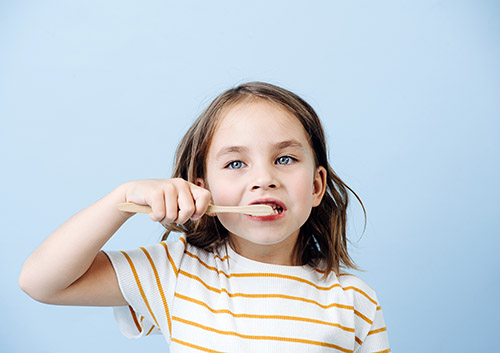Water: It’s Not Just for Brushing!
May 11th, 2022

We turn on the tap and it comes rushing out. We walk down the hall at work or school and stop at the fountain without even thinking about it. It’s the one item on the menu we most likely won’t have to pay for. Let’s face it—we’re probably taking water for granted. So let’s take a moment and look at the many wonderful things that drinking water does for our teeth and dental health!
- Cleaning Our Mouths
We can’t always brush right after eating to get rid of food particles. Bacteria feed on the sugars and starches left behind, and produce acids that lead to tooth decay and gum disease. Drinking water with our meals washes away lots of this food residue and dilutes the amount of acid our teeth are exposed to.
- Protecting Our Teeth
Water helps with saliva production, and saliva distributes important minerals such as fluoride and calcium to our teeth. This process helps strengthen enamel that might have been eroded by acidic foods and bacteria and makes our enamel less vulnerable to cavities.
- Preventing Cavities and Dry Mouth
Fluoride is a mineral that strengthens the structure of our teeth. Because so much of our water is fluoridated, you can get this essential mineral with every glass. If you don’t have access to fluoridated water, or if you tend to drink only bottled water (which may or may not have fluoride), please talk to Dr. Guijon about the best way to strengthen and your teeth and help prevent cavities.
Drinking the recommended amount of water per day also helps prevent dry mouth, a condition caused by decreased saliva production. Saliva not only helps remineralize our teeth, as mentioned above, but also works to wash away bacteria and acids that lead to cavities, gum disease, and bad breath. Luckily, we can help ourselves stay hydrated with most liquids, as well as fruits and vegetables that are rich in water content. But the easiest, most effective and often least expensive way to hydrate is with water.
Water just can’t be taken for granted. It’s a marvel of cleaning, protection, and prevention—and it’s calorie-free!




